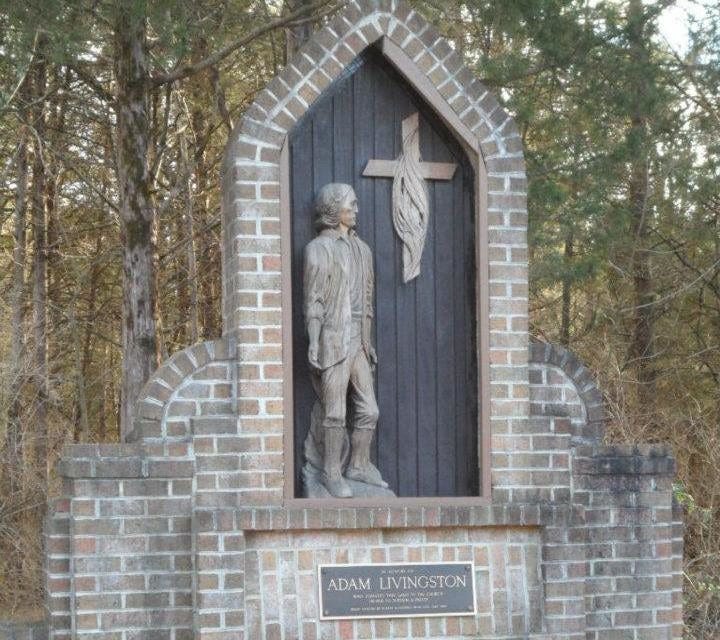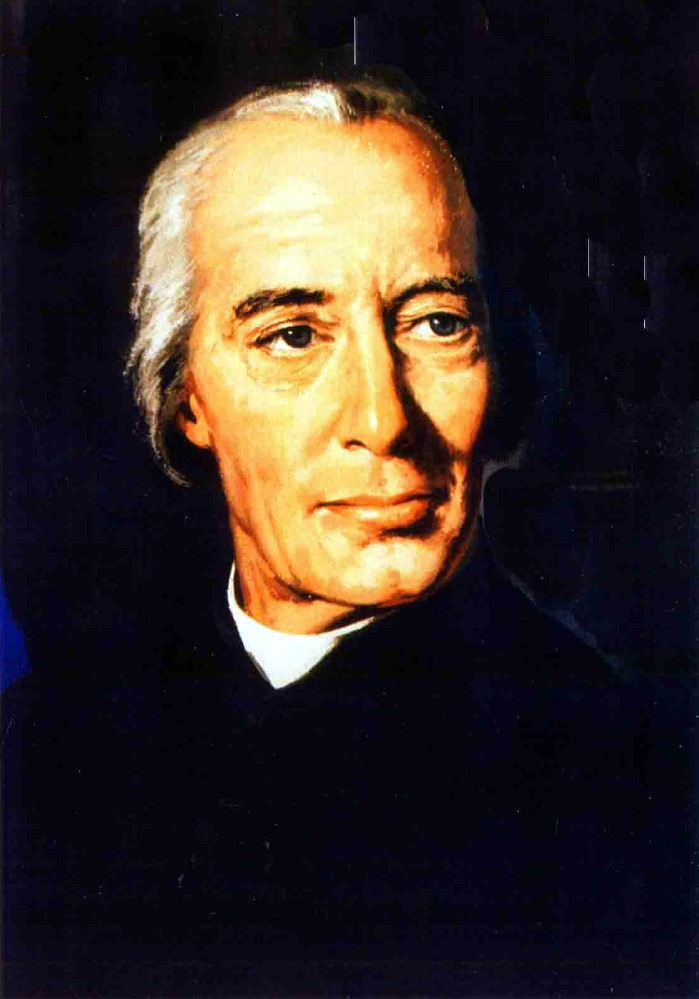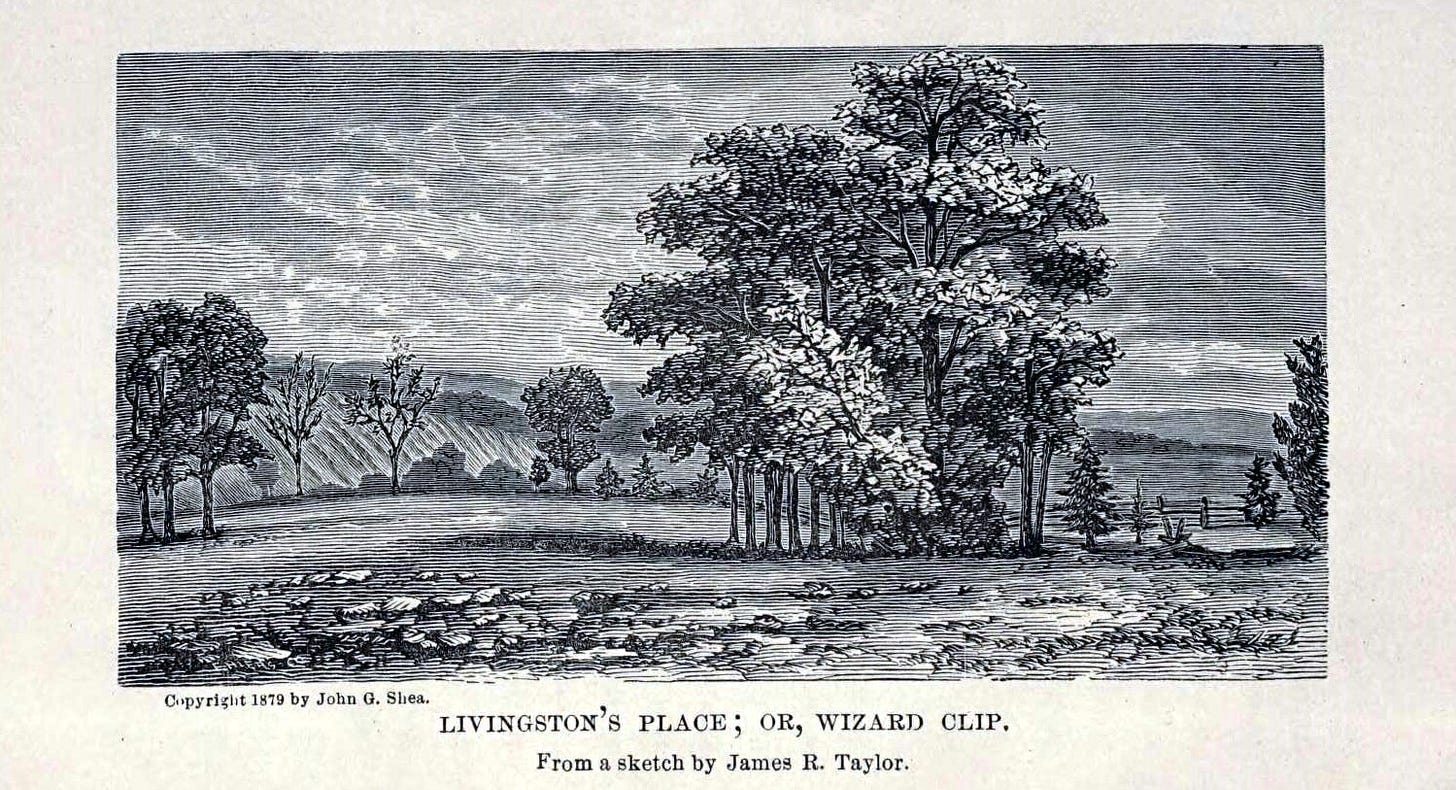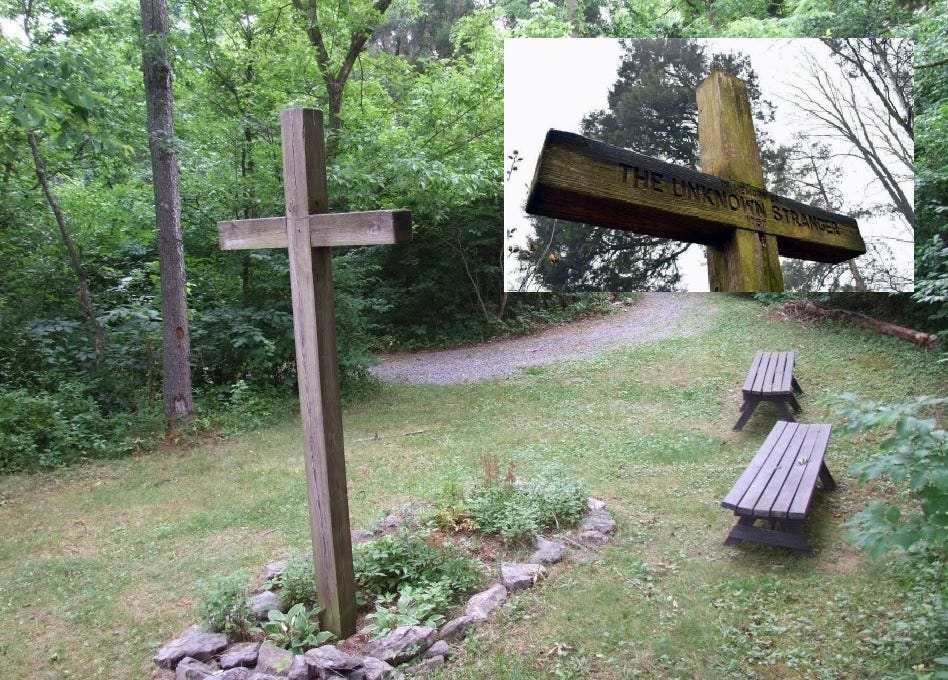The Livingston Poltergeist
In 1772, Adam Livingston and his family left Pennsylvania to settle in West Virginia, never anticipating the strange experiences that awaited them there.
John Adam Livingston born February, 1739, was a native of Lancaster County, Pennsylvania. In 1772, he inherited a 70-acre farm (in some versions it was a 350-acre homestead) from his father in Smithfield, Virginia. (Later it became Middleway-Kearneysville, Jefferson County, West Virginia). That same year he moved there with his wife, three sons and four daughters.
Again there is an alternate version of when the Livingston family started to experience the strange phenomena. In one they were plagued by negative events since they lived in Pennsylvania. Their livestock disappeared or died, crops failed, items would disappear to then reappear and scratching noises were heard in the house.
This is why the family was more than happy to relocate to the new property in Smithfield. However, whatever plagued them in Lancaster County, traveled with them to their new homestead.
In 1901, Anne Whitney, secretary of the Maryland Folklore Society gave the following account to the Clark Courier:
In 1794, a stranger took lodging with him and, being taken ill soon after, asked that a Roman Catholic priest be sent for, but Livingston, who is described as being a bigoted Lutheran, not only refused to grant his request, but declared that no Catholic priest should ever cross his threshold. Further entreaties of the sick man proving futile he died unshriven, but from the moment the breath left his body the home of Livingston became the scene of strange sounds and disturbances. The tramping of horses was heard at night round the house, the barn was burned, the cattle died, chickens and turkey had their heads snipped off as if by great shears, money that Livingston had saved mysteriously disappeared, and then the clippings began.
The day the stranger died, out of respect for the dead man, Livingston had a certain Jacob Foster sit with the corpse. Once darkness fell, and the candles were lighted, they suddenly went out. Foster tried to relight them several time but they would extinguish again by a breeze, that he didn’t feel but which would snuff out the flame.
In response to Foster’s complaint, Livingston brought candles which had been burning at his home, and which he knew to be good. Once they were placed next to the dead man they would not stay lit either. This is when Foster left the vigil and went home.
With help from neighbors, Livingston buried the stranger a day later on his property. He didn’t mark the grave since he didn’t know the man’s full name or his particulars.
Even though the family had been kind to the Irish traveler and cared for him, denying him last rites set all the events in motion.
Stones and pieces of firewood would be flung through the air; dishes and pottery would mysteriously come off the shelves and smash to the floor and beds would be burned. However the most mysterious of all was that everything was cut, mostly in the shape of a half moon.
Everything fell prey to the unseen clipper. Clothes, bedding, shirts, boots, saddles, and pretty much any other piece of fabric or cloth began to be mysteriously cut to ribbons, even if the person was wearing the item. Nothing was spared, neither their clothing or the animals. Stored linens and those hanging on the clothesline would be cut. A lady who visited took off her silk hat and wrapped it in a handkerchief to safeguard it. She found it had been cut to narrow shreds when she unwrapped it after she left the Livingston home.
The town would eventually be referred to as Clip or Wizard’s Clip. The crescent moon was thought to be some type of occult symbol.
Adam Livingston reached out to his Lutheran pastor, but was turned away after the minister argued that it was not in his power to banish the evil spirit in his house. Then he approached an Episcopal minister, and a Methodist preacher, but none provided a solution.
Three men came from Winchester to free the house, but upon entering inside, a large stone from the fireplace whirled on the floor for 15 minute. The three men left, without any attempts to relieve the family.
Livingston asked three conjurers to come. They used herbs, a Church of England Prayer book and a riddle to catch the Devil. This didn't work either.
Livingston’s wife convinced him to send for a Catholic priest even though she was a strict Presbyterian, and the family was Lutheran. There were no Catholic churches in Middleway, but they found out the McSherrey family at Leetown were sometimes visited by a priest. Upon seeing the priest, Livingston said he had seen the man in a dream.
Rev. Dennis Cahill was unwilling at first, but was finally convinced. He blessed the house with holy water and the family’s missing money was found on the doorsill. The disturbances stopped for a few days.
Another priest, Reverend Demetrius Gallitzin (who was a Russian prince before he took holy orders), also visited the Livingston residence around 1797. Surprisingly the manifestations, which had stopped after the Mass started again with his arrival
In a letter written in 1839, just a year before his death, Gallitzin declared that after three months of witnessing the disturbances at the Livingston home, “I was soon converted to a full belief of them.” Gallitzin had Cahill come back to the Livingstons’ and together they performed an exorcism that allegedly caused the house to shake with “the rattling and rumbling as of innumerable wagons.” Finally, after Cahill performed a mass in the house, the hauntings stopped, but not altogether.
The unpleasant manifestations were gone for good, and never returned.
Following the exorcism, Livingston and his family began hearing something they called The Voice. Cahill continued visiting the Livingstons to bring them into the Catholic fold, and found that the family now claimed to be being instructed by the strange voice that taught them about Catholicism and piety.
The voice would pray the rosary with them, and instructed them in the Catholic religion. The family had no books in Catholicism, and they barely spoke English only Dutch, and many were perplexed how they learned their catechism
The voice would come in the night and make them pray for 3 hours at a time, and not let them rise until it would say Deo gratias.
The Voice was said to exclaim, “I want prayers!” and shame members of the family who were not pure in their confessions. It was under these unusual circumstances that Adam Livingston and a number of his children became devout Catholic converts.
The Voice remained with them for the next 17 years. It was believed that due to the Voice’s knowledge of Latin and liturgical hymns it was the soul of a priest trapped in purgatory.
During these years, Livingston’s first wife died and he remarried. His second wife became virulently opposed to the Voice. It had predicted she would die in her own house. While visiting a Quaker family she became very ill, and she refused to be taken home. She recovered, but soon after arriving home, she was stricken and died as the Voice had foretold.
Before moving back to Pennsylvania, in February of 1802, Livingston deeded 38 acres of his land and the small house to the Catholic Church in perpetuity. He died in 1822.
In accordance with his gift, he stipulated that there should always be a member of clergy on the land, and that any profits from it should go toward building or repairing a church on the land.
By the end of the Civil War, the Livingston house was in ruins, however even after so many years it was regarded with terror by the people, and they would not pass by the field after nightfall. All that was left of the house was two pear trees and a cellar. Beyond the trees was the Priest's Spring.
In the 1870s, the land was used by the Catholics as a burial ground. Many were buried under the shade of large oaks.
Even years after the story Rev. John B. Gildea who had built the church at Harper's Ferry was intimate with the McSherry family, believed the entire story.
There was more than one version as to how the Livingston farm became haunted. One of the stories was told by Mary Ann Taylor, who was born in 1782 in Frederick County, Maryland. When she was 10 years old, she remembered her mother would speak to friends who came to visit of a great ghost story, which she knew to be fact, "but as the spirit was laid at rest by a Catholic priest, and the prejudice against the Catholics was so great, it would not be credited.”
Her father Thomas Poole Esq. had gone with a number of men from Baltimore to see firsthand if the story was true. Also present was his oldest daughter and a servant. They traveled 75 miles on horseback, because the route was "too intricate for a carriage." This is what was described:
... the residents of the house could get no rest, night or day—ministers of all denominations were called in to pray for the repose of the soul of the former owner of the premises—but to no avail. At last a Catholic priest was called in—the spirit confessed to have murdered his predecessor, and that the spirit could not find rest until he had made restitution and had given to the murdered man Christian burial. The spirit also made known the spot where the body lay, which was disinterred and witnessed by a great number of the residents and strangers. The property was restored to the rightful owner and the spirit was at rest. ...it affected him (Mr. Poole) deeply at the time, as did all who witnessed it!
On November 2, 1922, All Souls Day a large celebration was held to commemorate the 150th year anniversary of the events at what had once been the Livingston farm. Burials on the land had stopped, and in 1923 a chapel was built there in honor of the souls in Purgatory.
So what was the true origins of the Livingston poltergeist? More than likely it will never be known. In Middleway, triangular historic markers still bear a crescent moon and shears in opposite corners to honor the legend.
The land Livingston deeded, the Priest Field Pastoral Center, still belongs to the church. Today it is a peaceful retreat used by everyone from religious leaders to sewing clubs to AA groups and no further disturbances were reported.










